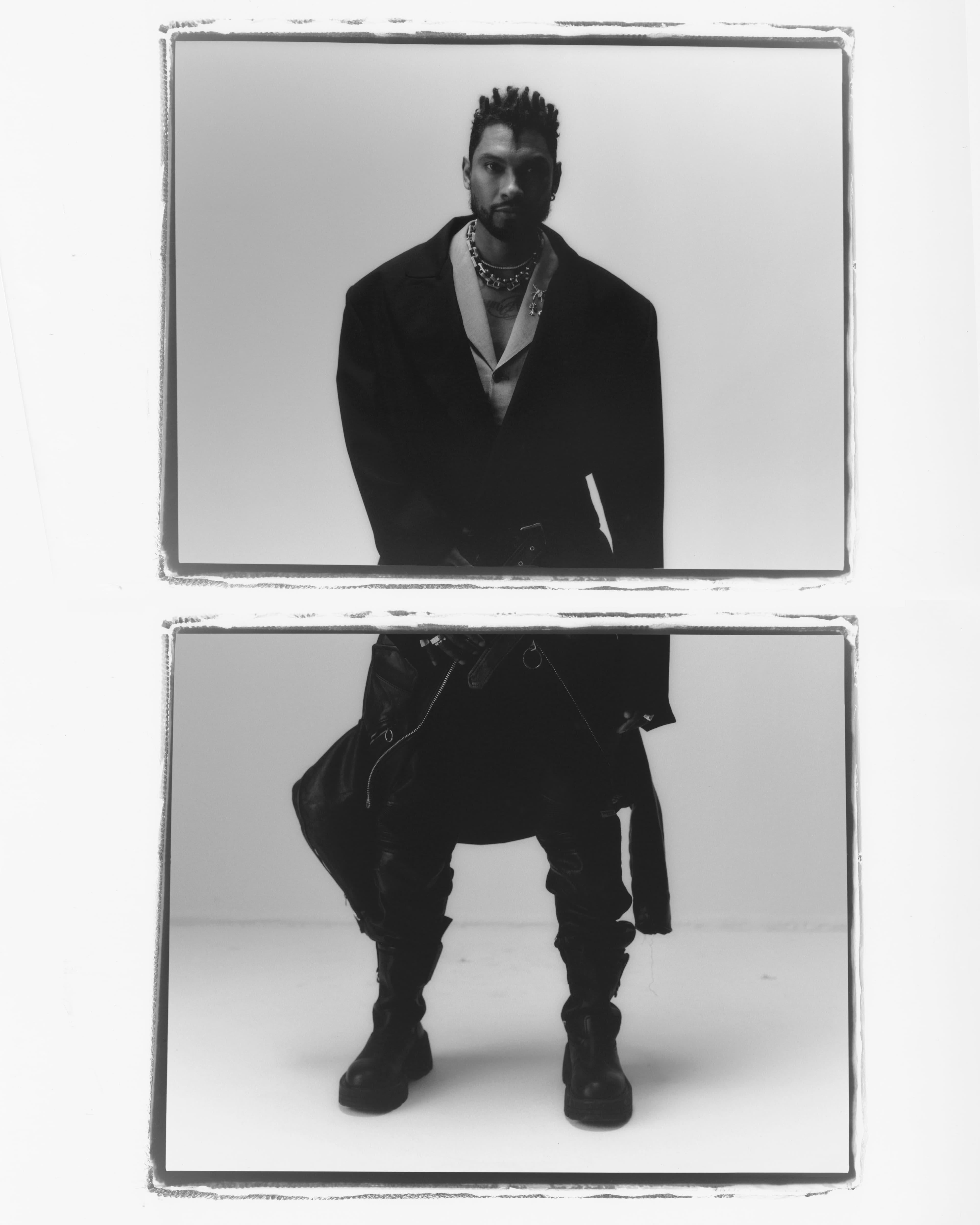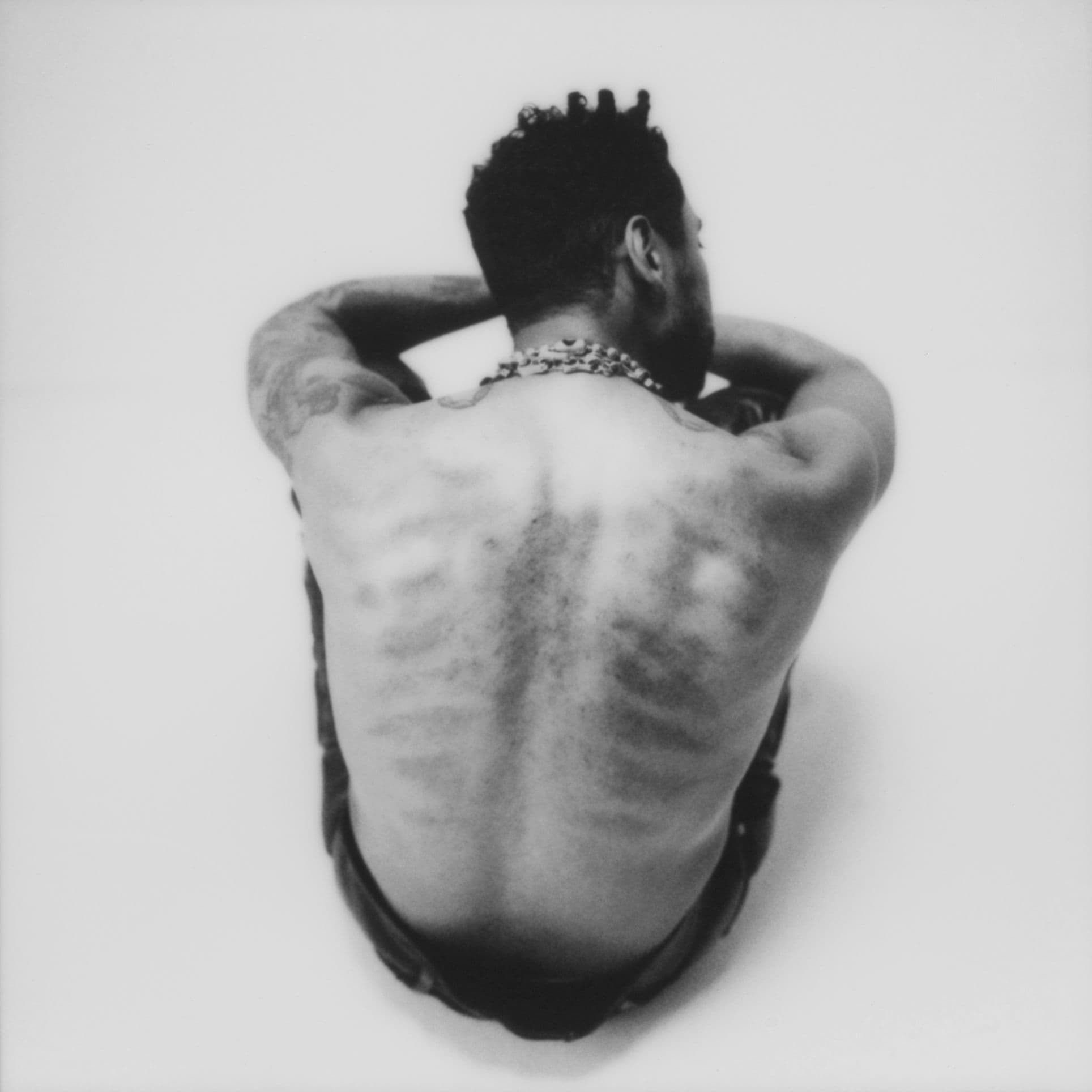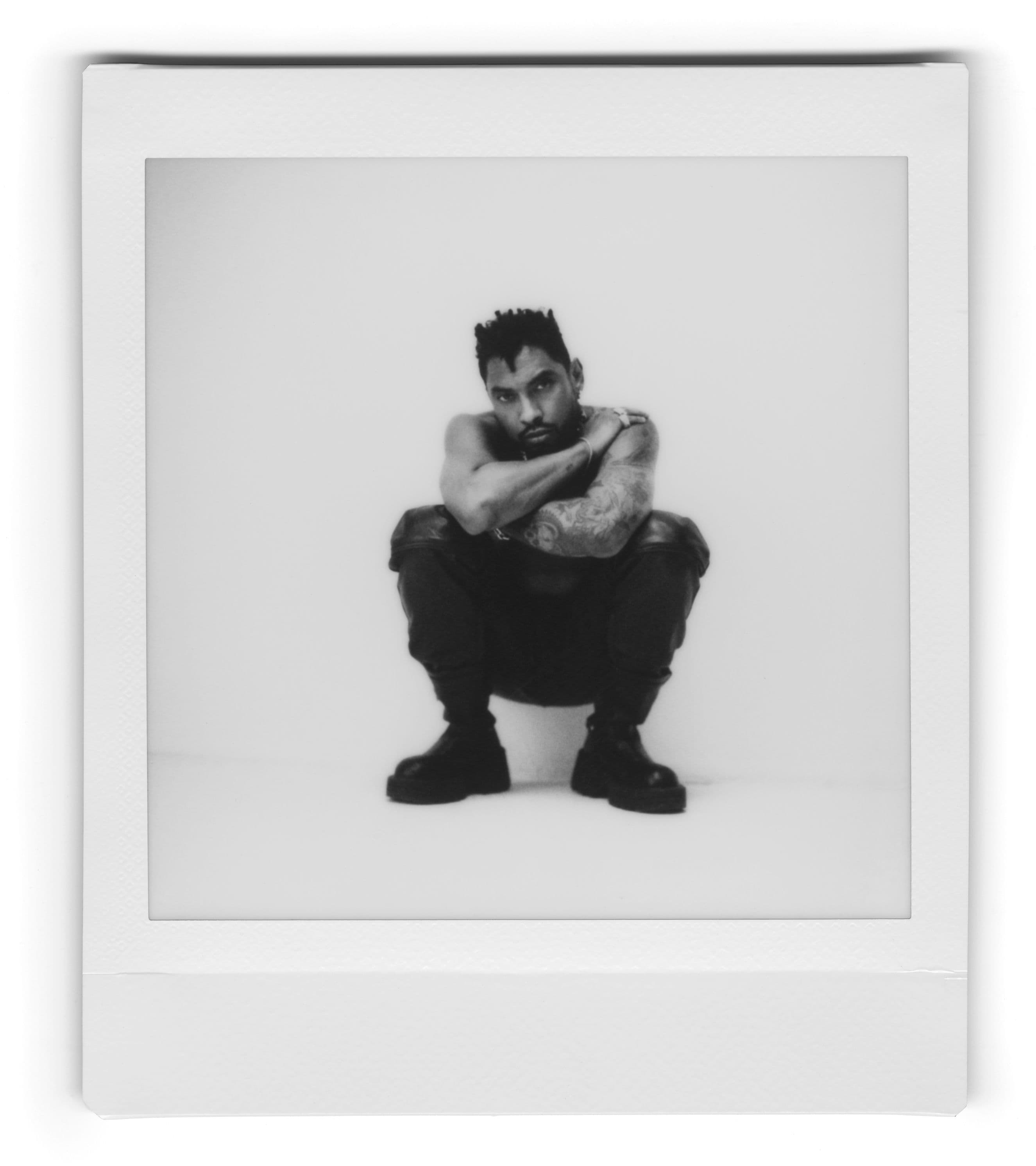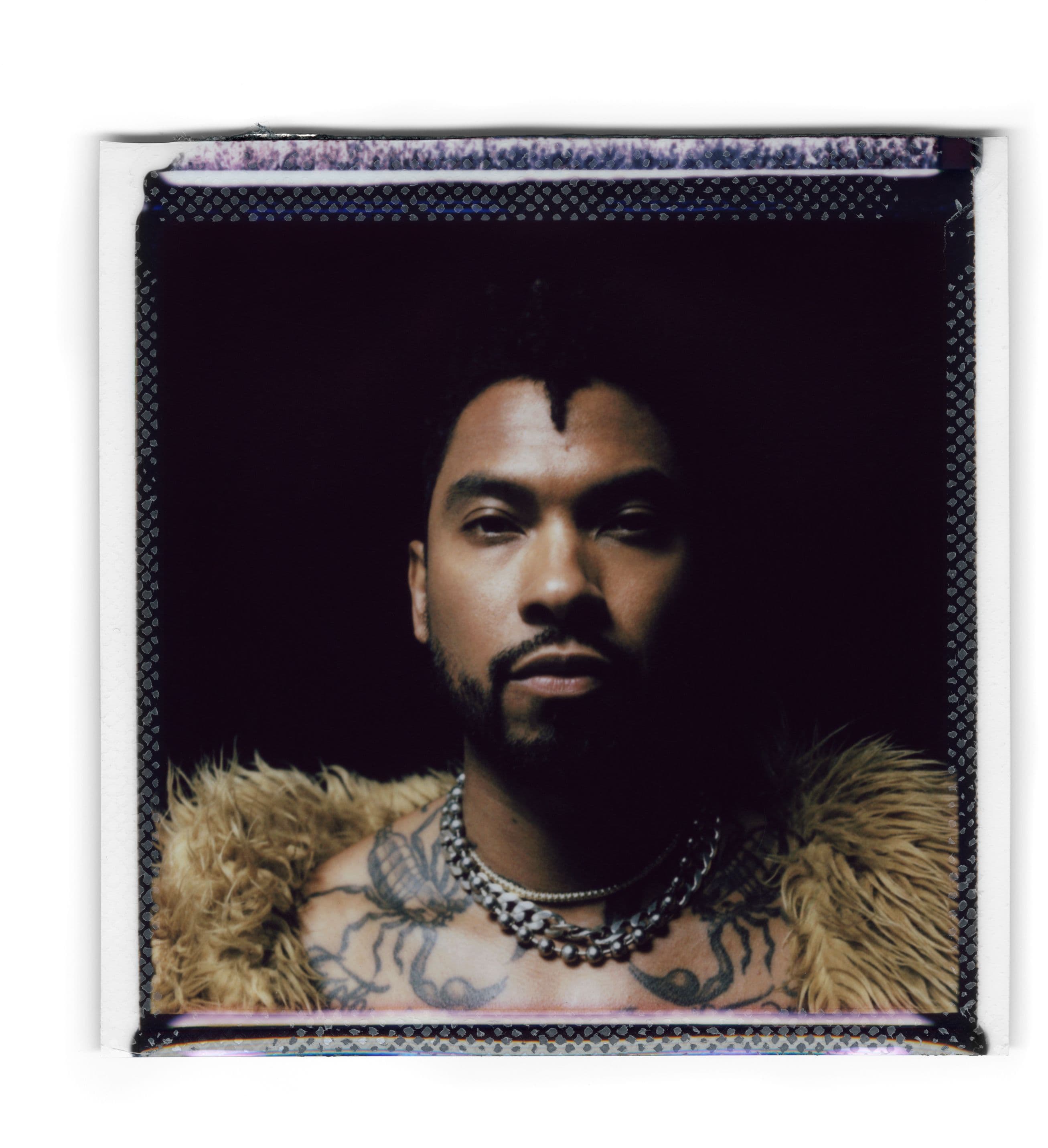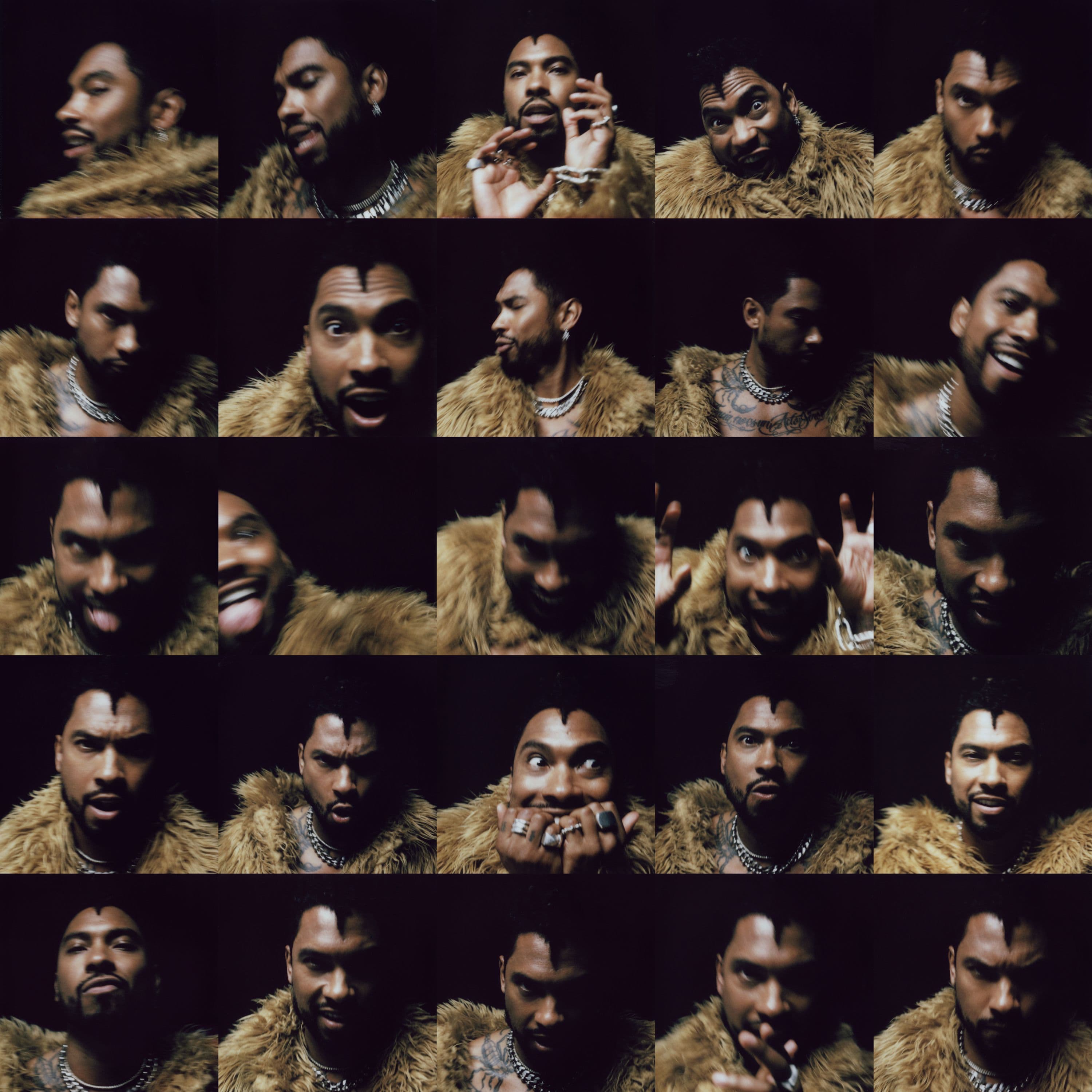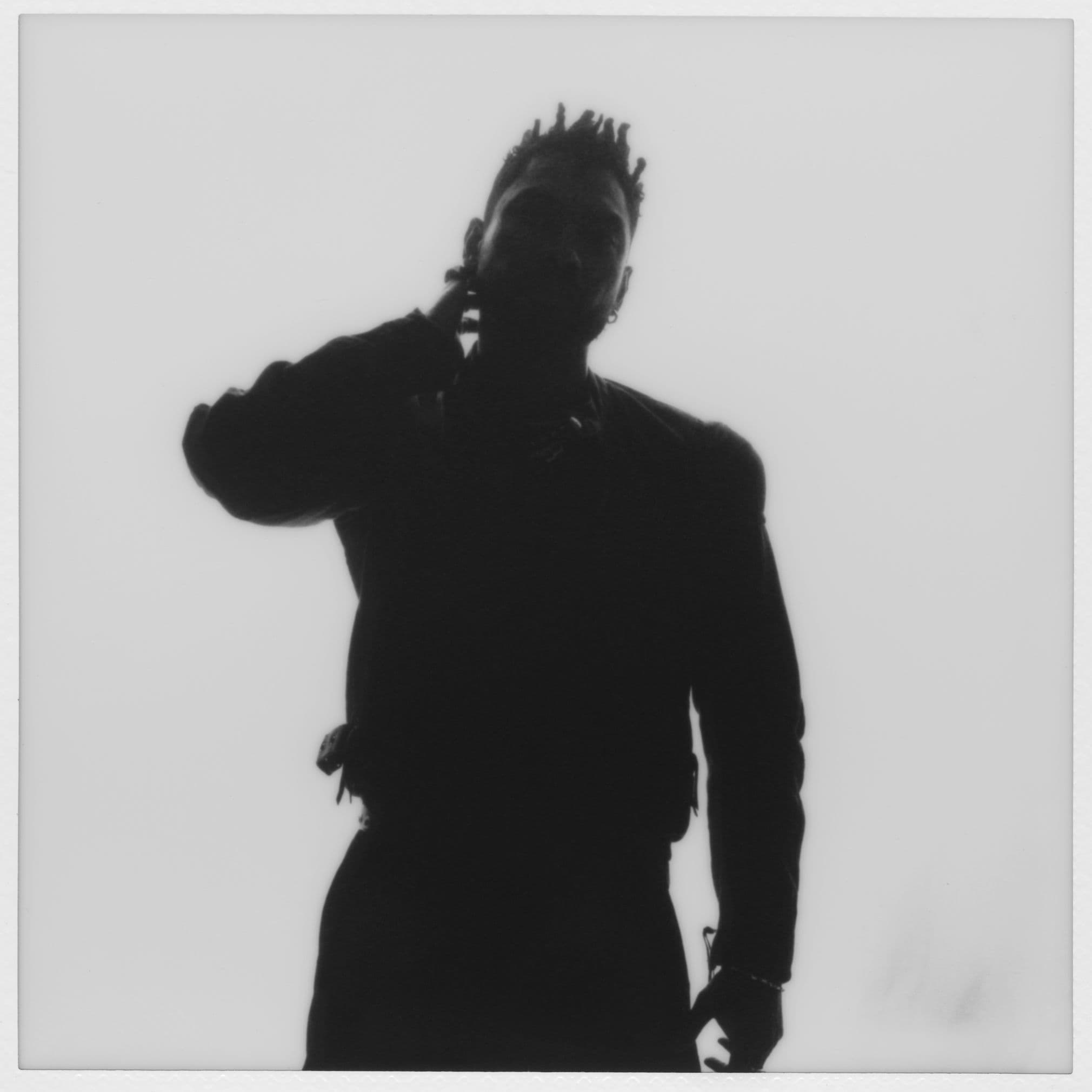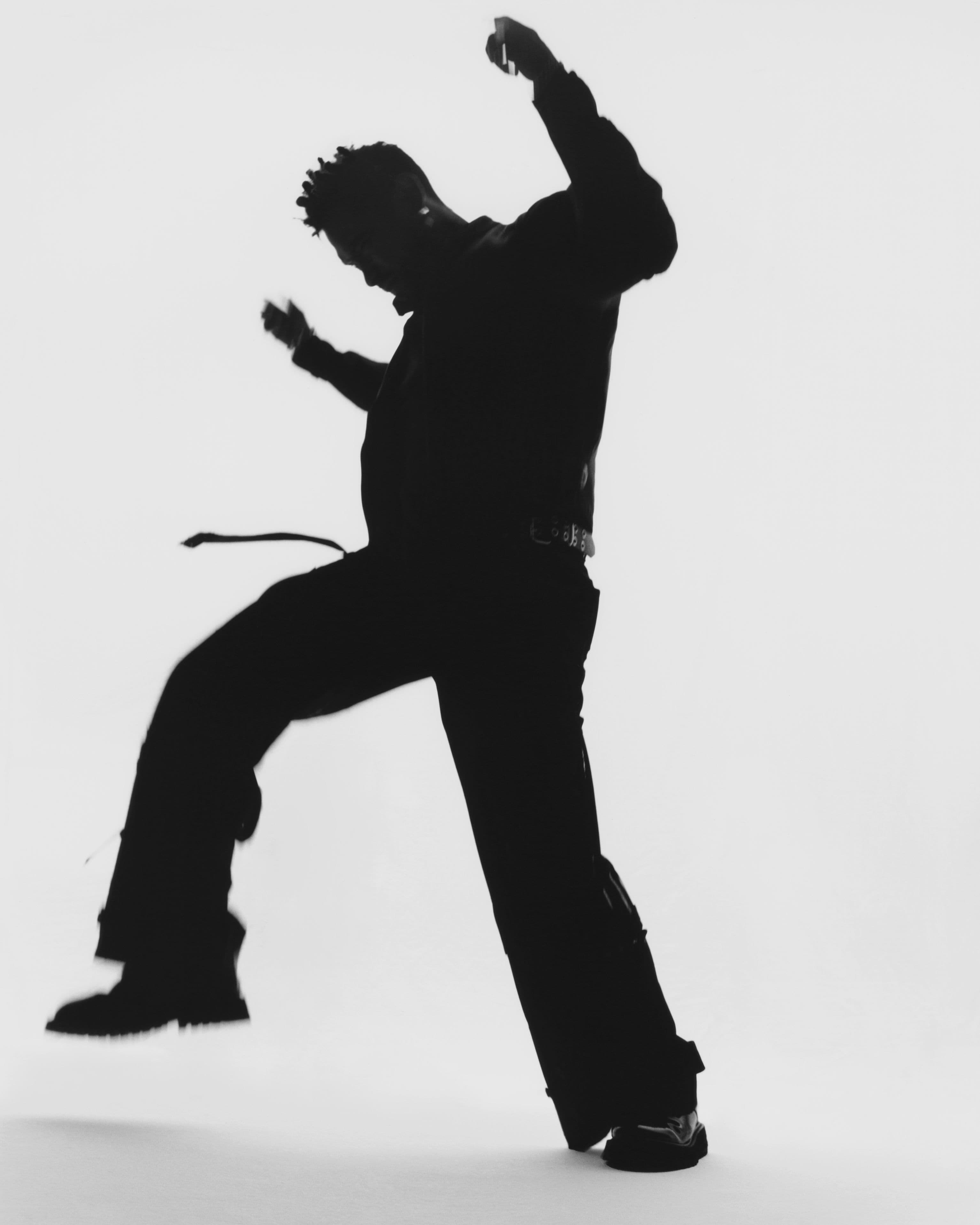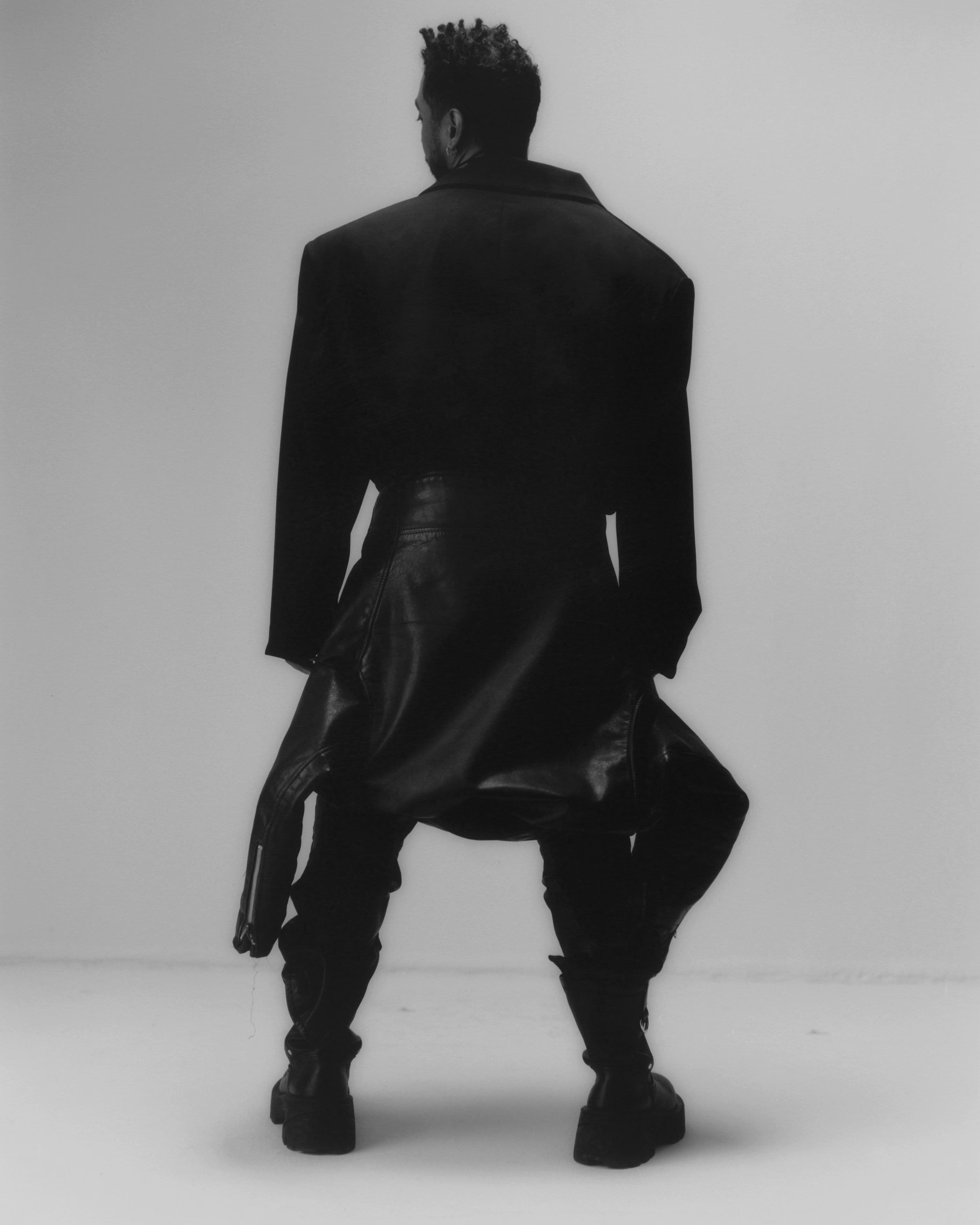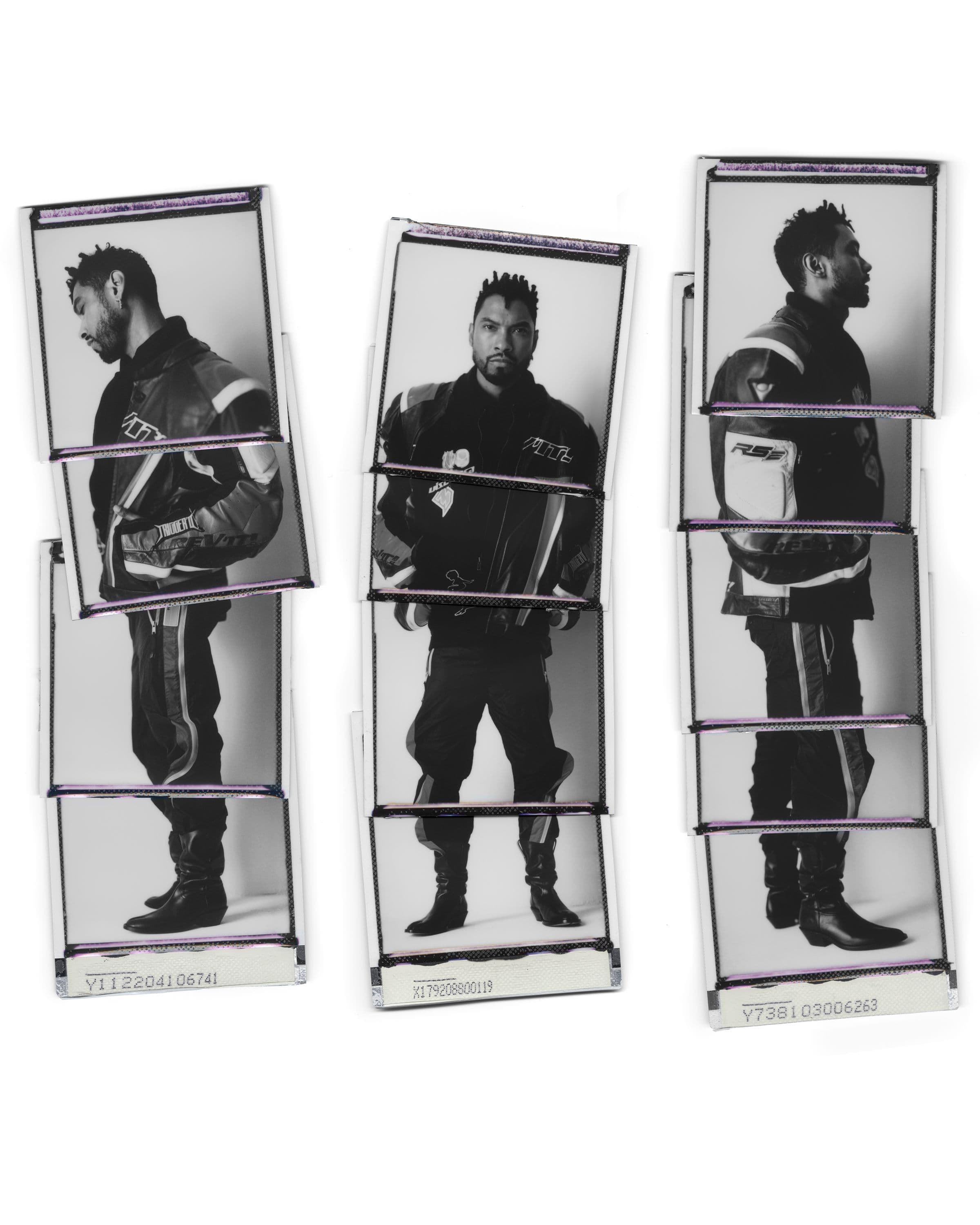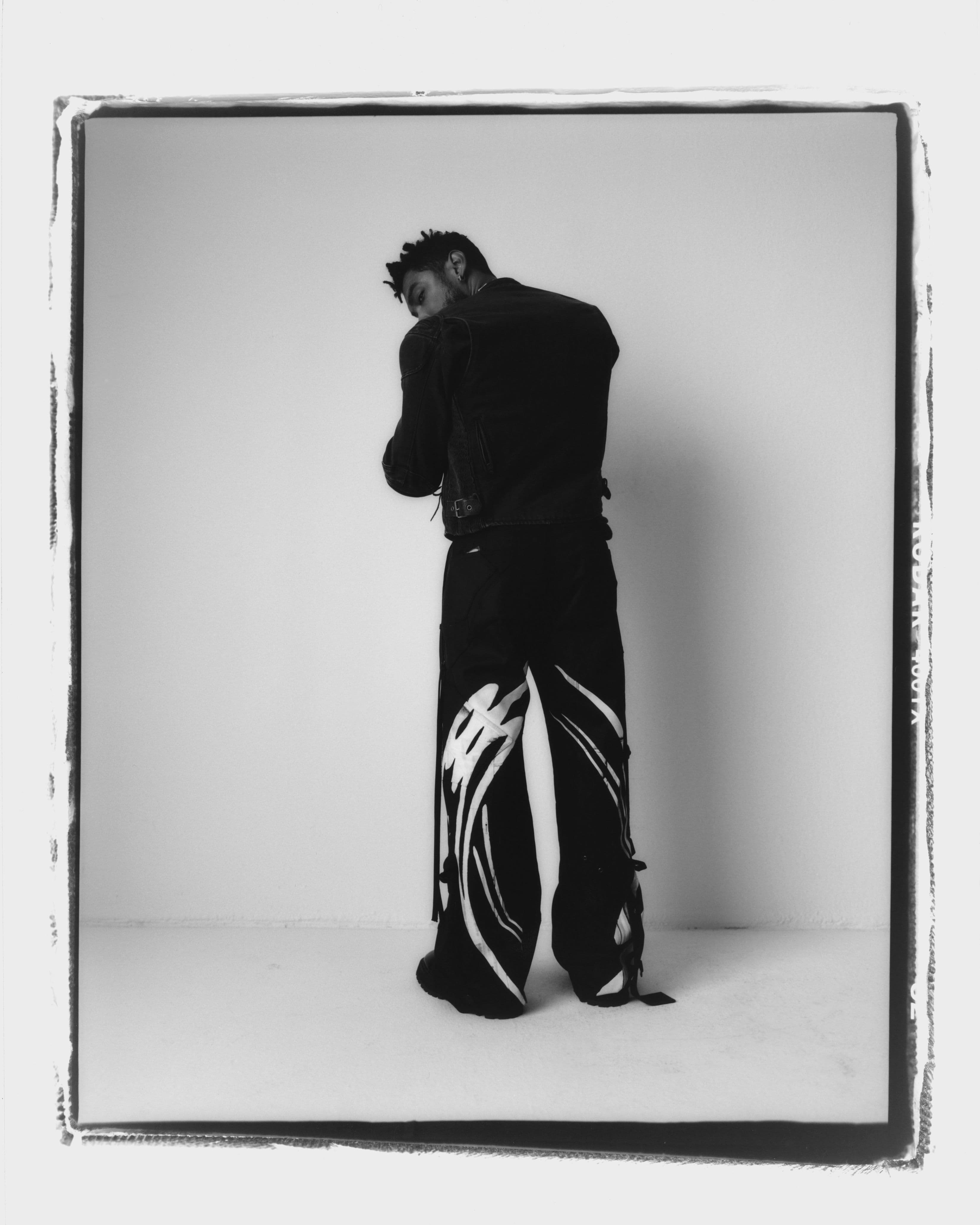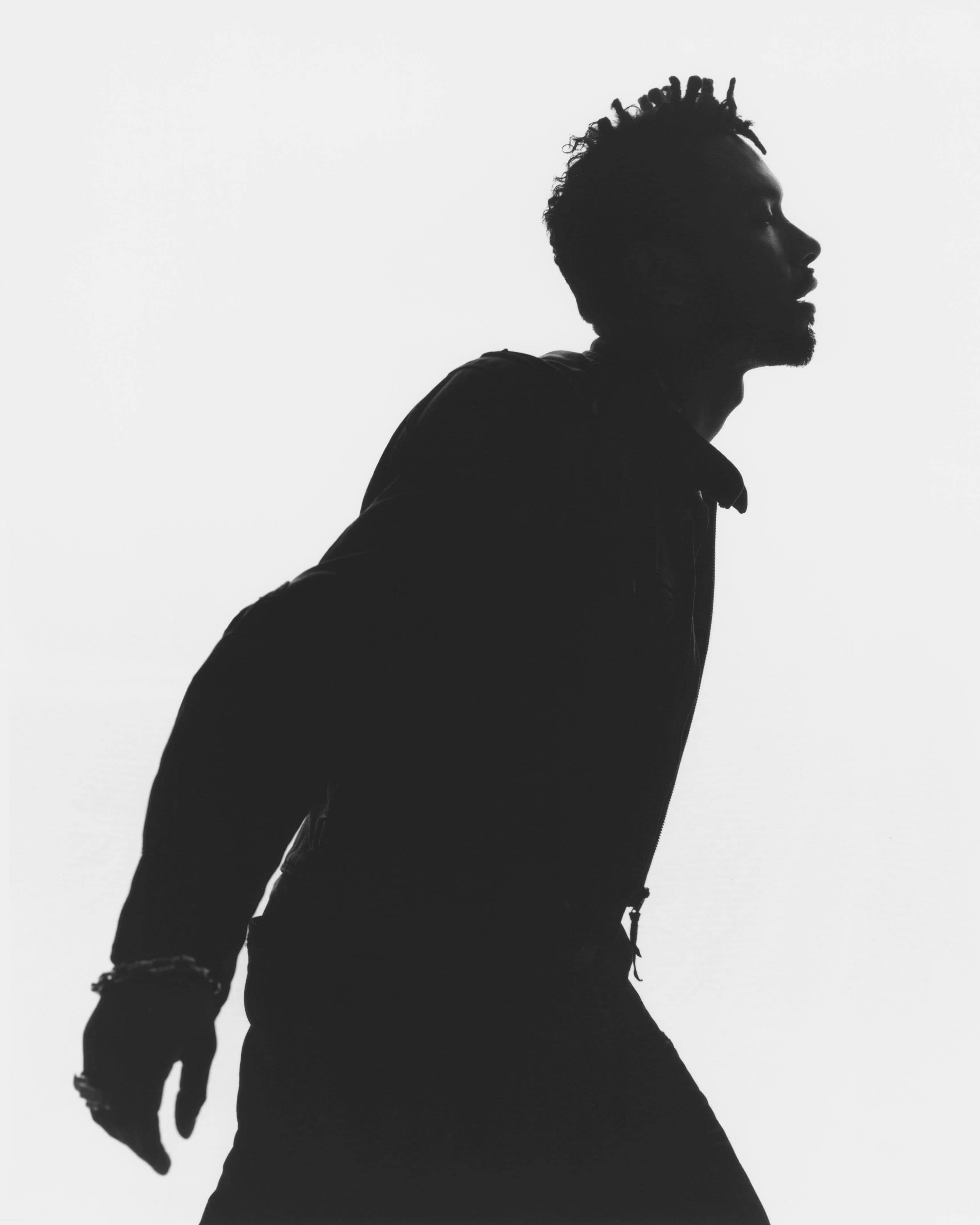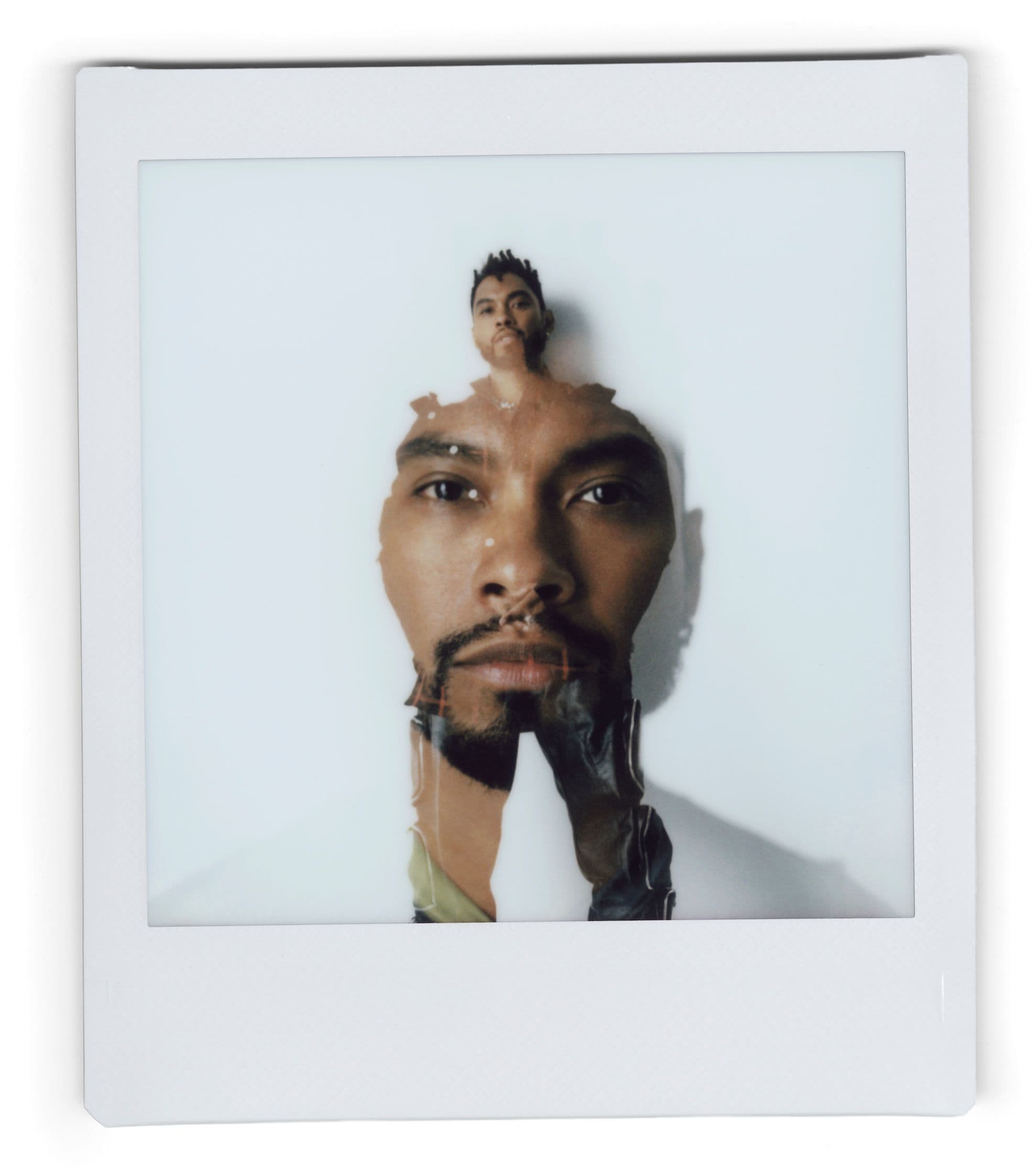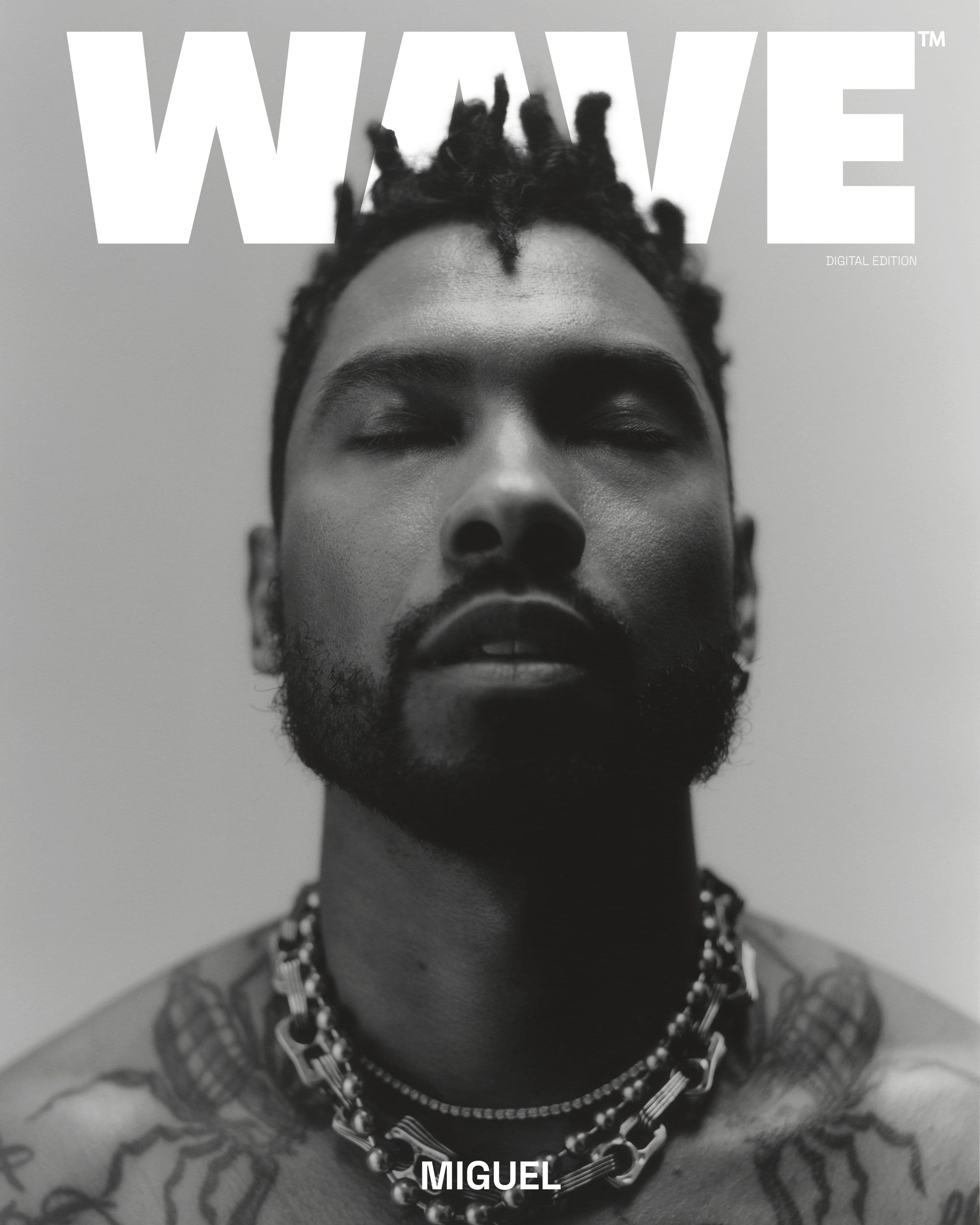RIGHT TO CHANGE - MIGUEL DIGITAL COVER
Jaye Hannah
Known for his soulful voice and an eclectic mix of R&B, funk, and electronic sounds, Miguel has carved a niche that transcends conventions. Over his ten year career, he’s continuously redefined the boundaries of genre and artistic expression, challenging both himself and his audience—but also, as we learn, having a lot of fun along the way.
With the anticipation building for his upcoming album, WAVE sat down with the Grammy Award-winning artist for an exclusive chat exploring the depths of his artistic metamorphosis. As Miguel prepares to share Viscera with the world, he shares his insights on the disciplined control of his craft, the complexities of his lyrics, and his new direction marked by a profound sense of authenticity and freedom.
Your career has spanned a decade, marked by genre-blending and innovation. How has your artistic vision evolved over the years, and what drives your constant exploration of new sounds and styles?
My artistic vision now isn't very different than it was from the beginning. I think I've always wanted to at least capture what inspires me in the time that it inspires me. And it's the same now. I mean, for the most part of my career, at least leading up to this point, it's always very much been rooted in sharing things about relationships and love and my sexuality and the intimacy I look for in my sexuality and the depth of love that I'm hoping to manifest in our life. And I think those things have been one of the things that have made some of my music timeless.
I remember Lionel Richie telling me, ‘man, love never goes out of style’. He's like, ‘I still have avid fans who I get to see and share energy and music, and moments with all around the world’. That's obviously not all he does now, but it's something that he still gets to do because of that.
So, for a short answer, my vision was always just to share truthfully. And now that's how it's different, it's expanded to a wider range of my emotions. So I'm excited to explore new territories, let my fans in on a more holistic, more rounded sense of who I am, and give them a little more of the person I am.
The Viscera Experience showcased a unique blend of performance art and music. How do you approach the integration of visual and auditory elements in your work, and what role do these immersive experiences play in conveying your artistic message?
The place where I spend a lot of my time outside of the way that the lyrics feel in the music is the sonic, the sound around it. And then applying that was something that came naturally - trying to capture a tone more than anything. So I really wanted to capture the tonality of the album in the performance. Because I think that that's what it was all about - introducing a new tonality to my audience so they can at least know what they're stepping into as we start to roll out the album.
Collaborations have been a significant part of your journey, including Number 9 featuring Lil Yachty. How do these partnerships contribute to your creative process, and what do you enjoy most about working with other artists?
I'm looking forward to more meaningful collaborations. I think, in the past, there have been collaborations that were more my friendship with the artists outside of the music, and I was showing up for them.
There are collaborations that better represent my personal taste. Obviously Cole and Kendrick, just through the music, you can hear that there's a synergy there. But really expanding on that repertoire of collaborations to express a more rounded sense of my taste is exciting. It's really exciting to think, oh man, we should collaborate more with artists that represent all the different tones and colours that you love in music and artistry.
So there's a big opportunity there, and I'm excited to get to ten years from now and have a lot more variety in my collaborations. Ones that give my audience a more rounded sense of my taste and what I appreciate in music.
As a versatile artist, how do you approach the challenge of creating a cohesive album while exploring a range of musical styles and themes?
This is one of the things that I don't know how to do. To be fair, I don't think I've always captured cohesion in my albums. There may be an album where I'm like, ‘oh, I wish I would’ve dialed it in here’. We could have maybe changed the order up to give it a little more of a flow.
For the most part, I feel like there's been cohesion in my albums and my projects. I think what I find in the albums I appreciated the most is that there's a sonic emotion coming through that makes it cohesive for me. And sometimes it's a stylistic thing, there's easy ways to do that. That doesn't tend to be my approach, which is going the same way a band would and using the same elements in every song.
For me, I find I lean more into the moods of the music. So for this album, I would say what holds it together is that overall we're exploring darker emotions. Well, maybe not darker - just maybe less surface-level. More intimate emotions. That’s what holds this album together, which is what I was hoping to do.
Viscera is described as an exploration of change through risk-taking. Can you share a bit about the personal experiences or inspirations that shaped the themes of this album, and how your own growth is reflected in the music?
I think the overarching theme is ending and beginning. All of the ways that cycles proliferate in life. Ends of ways of behaving, ends of ways of thinking, new ways of thinking, new ways of behaving, and all of the violent, beautiful change that has to happen for that to manifest. It's that in-between area that this album really captures. That's why I said it's not necessarily a dark album. It's just a little more complex in all of the manic emotion. It's realization, it's mourning, It's sadness and pain. And then acceptance, happiness, and growth. I think acceptance is a big one. There's a lot of power in accepting and being able to move forward, and having a real sense of self through your growth.
There's a lot there. And it's not dark. It's just the complexity of change. That's what this album represents for me.
Looking back at your discography, is there a particular song or album that holds a special place in your heart or represents a pivotal moment in your career?
They all do. They all represent different stages of my artistry and my goals as an artist. I think this album takes my favorite things from all of those and then expands on them.
Freedom is a big thing for me. I'm learning that feeling free to do and be as I feel is honest and true, and not having to live up to anyone’s expectations is really important, and each album is an expression of my freedom coming from where I come from.
So all my albums are shades of who I am, and this next album takes the things that are the most visceral in those albums and expands on those things in the most intimate way that I've ever been able to express before.
In your decade-long career, you've explored various musical styles. How do you maintain authenticity while experimenting with different genres?
I just go with what excites me now, you know? I think it's such an underrated gauge. We forget that when we're excited by things, that's a spiritual indication. Now, if it excites and scares me at the same time, it’s an indicator that this is worth sharing. I can get behind this now and be excited about it.
Like, if I can listen to a song, top to bottom, and I’m still in it all the way, I'm not checking my phone, that's my gauge. And it's worked. The songs that I've been the most excited about, top to bottom, when I play them now, I still feel the same way. So that's the only way I know how to do that.
R&B has seen considerable evolution over the years. How do you think the genre has changed since you first entered the scene, and where do you see it heading in the future?
R&B now, it's just cycles. I think we forget that we live in cycles and time, and human behavior happens in cycles. So understanding how cycles happen and how interests repeat and change and evolve, it's almost like sociology. If we look through the history of music, what we want from music is what we see in the cycles of not just R&B but in every genre. I think we're starting to get there - and in the business of music, I think we're starting to see it proliferate that way too. So I love every version of R&B. I love that we're getting to more traditional R&B chord structures. We're getting back into the same approach that we were getting from the 90s into the 2000s.
And it's going to happen really fast. We're going to switch over to it no longer being about, like, big singles. It's more about the intimate approach we're all feeling. We're feeling that we have to work so hard for intimacy because we're getting so much information. But connection and information are different. You can have a conversation with someone and get information, but looking into their eyes and answering deeper questions will give you a completely different sense of who they are and how you connect. And we're looking for that in our music, so regardless of the genre, that's where things are going.
Give It To Me explores themes of flirtation, desire, and chemistry. How do you translate these emotions into your music?
Give It To Me isn’t even a complicated song. It's just, ‘yo, I haven't heard flirtation in a minute, and this is how I feel’. If anything, the sound of the song is where I spent most of my creativity. The production of the song is where I really wanted to explore. Like, can we make this a harder feeling? Can it be a little more aggressive? I think capturing that was where I focused my attention on the song. I mean, the song bangs to me. I fucking love that song.
The visuals in your music videos often complement the themes of your songs. How involved are you in the creative process of your music videos?
Different amounts at different points. Now, I'm mostly interested in collaborating with people I trust and allowing them to do what they've spent all their time and energy doing. When we need to pivot just to make something feel more true, I'm always involved in that way, but visually, now, that's what I'm interested in.
Now, it doesn't mean that I won't write my own treatments and be hands-on all the way, but right at this moment, there are so many things to do. I prefer just collaborating with people I trust and don't have to give notes to.
What message or emotions do you hope fans take away from the new album?
Change is your right. It's your right to evolve and to change. And though it may present uncomfortable, painful, experiences in the end, it's the process of breaking through the cocoon that make moths strong enough to fly.
